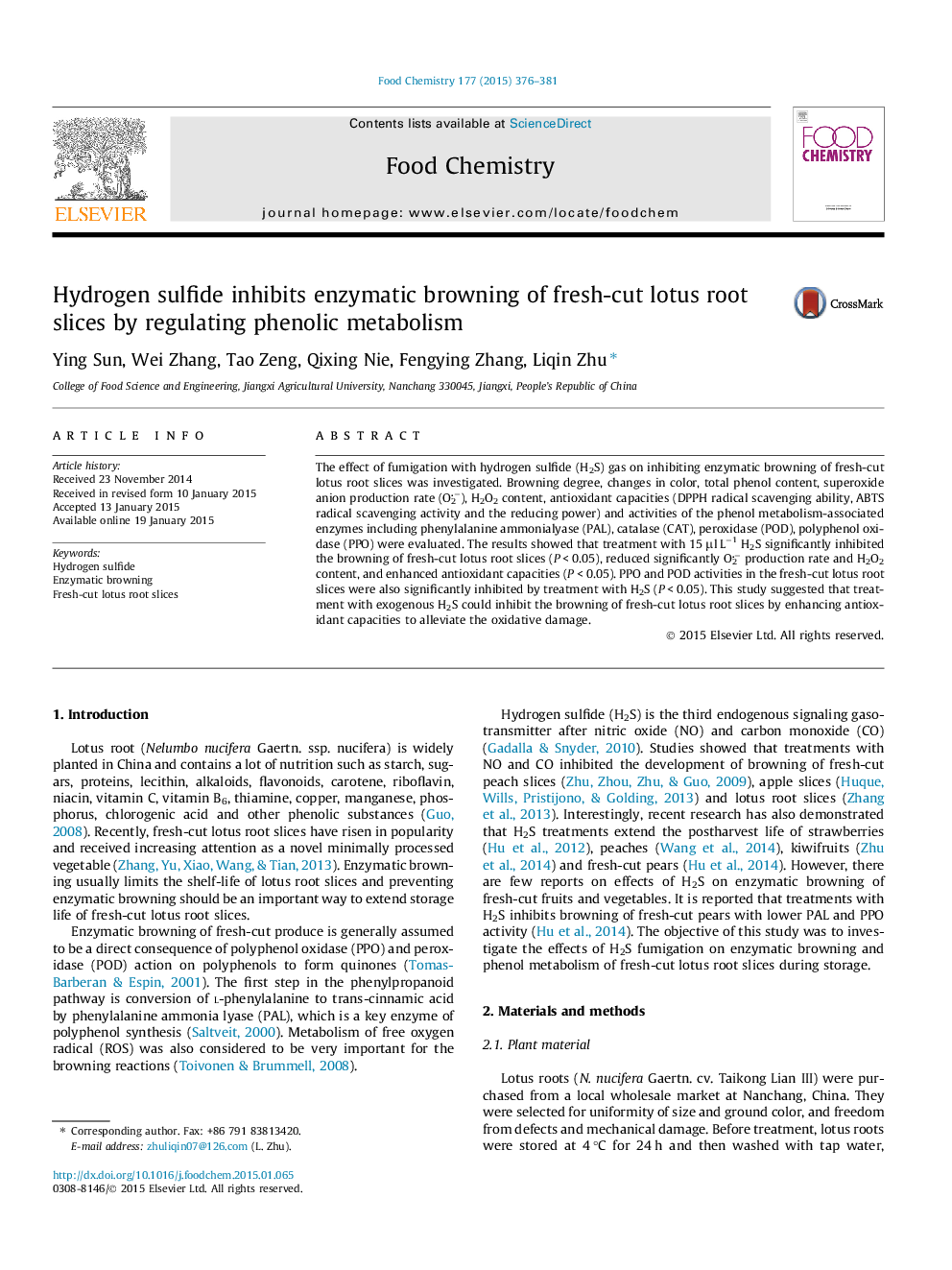| Article ID | Journal | Published Year | Pages | File Type |
|---|---|---|---|---|
| 7592594 | Food Chemistry | 2015 | 6 Pages |
Abstract
The effect of fumigation with hydrogen sulfide (H2S) gas on inhibiting enzymatic browning of fresh-cut lotus root slices was investigated. Browning degree, changes in color, total phenol content, superoxide anion production rate (O2â), H2O2 content, antioxidant capacities (DPPH radical scavenging ability, ABTS radical scavenging activity and the reducing power) and activities of the phenol metabolism-associated enzymes including phenylalanine ammonialyase (PAL), catalase (CAT), peroxidase (POD), polyphenol oxidase (PPO) were evaluated. The results showed that treatment with 15 μl Lâ1 H2S significantly inhibited the browning of fresh-cut lotus root slices (P < 0.05), reduced significantly O2â production rate and H2O2 content, and enhanced antioxidant capacities (P < 0.05). PPO and POD activities in the fresh-cut lotus root slices were also significantly inhibited by treatment with H2S (P < 0.05). This study suggested that treatment with exogenous H2S could inhibit the browning of fresh-cut lotus root slices by enhancing antioxidant capacities to alleviate the oxidative damage.
Keywords
Related Topics
Physical Sciences and Engineering
Chemistry
Analytical Chemistry
Authors
Ying Sun, Wei Zhang, Tao Zeng, Qixing Nie, Fengying Zhang, Liqin Zhu,
